
As Russian forces swept into town and artillery shells exploded outside last winter, residents of this village about 30 miles northwest of Kyiv cowered in fear in the basement of the local school. On Thursday, the Russian invaders who failed to seize the Ukrainian capital were a memory, and the school was the scene of a much more tranquil and joyous occasion: the official opening of the academic year, which takes place annually on 1 September.
With traditional pageantry, 15 year-two pupils were escorted into the school’s auditorium by the oldest students. They sang the Ukrainian national anthem and recited prepared phrases about the day’s importance, while a gaggle of proud parents looked on. At the end, the pupils took turns ringing a bell to mark the start of their academic life.
Across shocked and shattered Ukraine, ceremonies like this – one of the country’s most cherished peacetime rituals – showed resilient Ukrainians grasping for a semblance of a normal life. But the day also highlighted the terrible damage that the Russian invasion has wrought, with many school buildings destroyed, millions of people displaced and countless children, parents and teachers traumatised.
Some 1,000 children have been confirmed killed or injured in the war, according to Unicef, which acknowledges that the “true number” is “much higher.” And close to two-thirds of children nationwide have been forced from their homes. In front-line areas, where many children remain, Ukrainian education officials say only online education is available – if even that.
Researchers from the Centre for Information Resilience, a nonprofit group based in Britain, reported that in Kharkiv, Ukraine’s second-largest city, the shelling of schools was intentional: “targeted rather than a by-product of indiscriminate attacks on civilian infrastructure.”
Before and on the first day of school, The Washington Post spoke to and photographed students and parents across Ukraine to collect their experiences and gauge emotions at the start of a school year unlike any other in the nation’s modern history.
In Nove Zalissya, the day’s festivities masked memories of the Russian forces’ terror campaign.
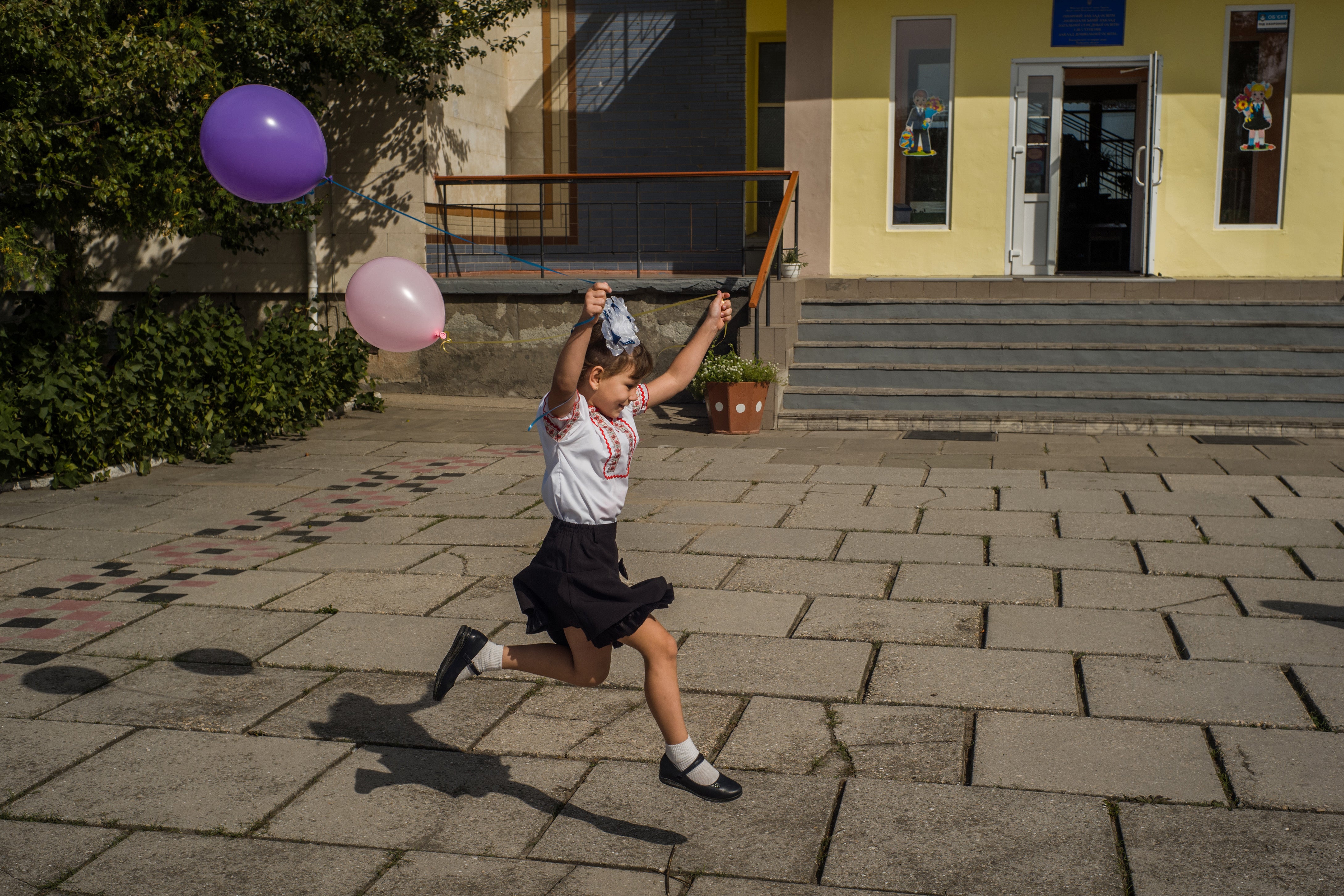
Khrystyna Maksiuta, 16, who is set to graduate this year, remembered “a lot of corpses on the ground” as her family travelled from town to town to escape the Russian troops.
“The worst day,” she says, was when a shell exploded just outside their house, blowing out the windows. “I saw just fire and glass. I started screaming and lost consciousness.”
The return to school and reuniting with friends were reasons to be happy, she says: “We are starting to fix our lives little by little. I hope it will continue to be good.”
Severyn Zinko’s first day of school was normal by Ukrainian wartime standards.
The 7-year-old, who was entering year two in the western city of Lviv, wore a traditional embroidered Ukrainian shirt, a vyshyvanka, with blue and yellow ribbons, the colours of the Ukrainian flag, tied around his neck.
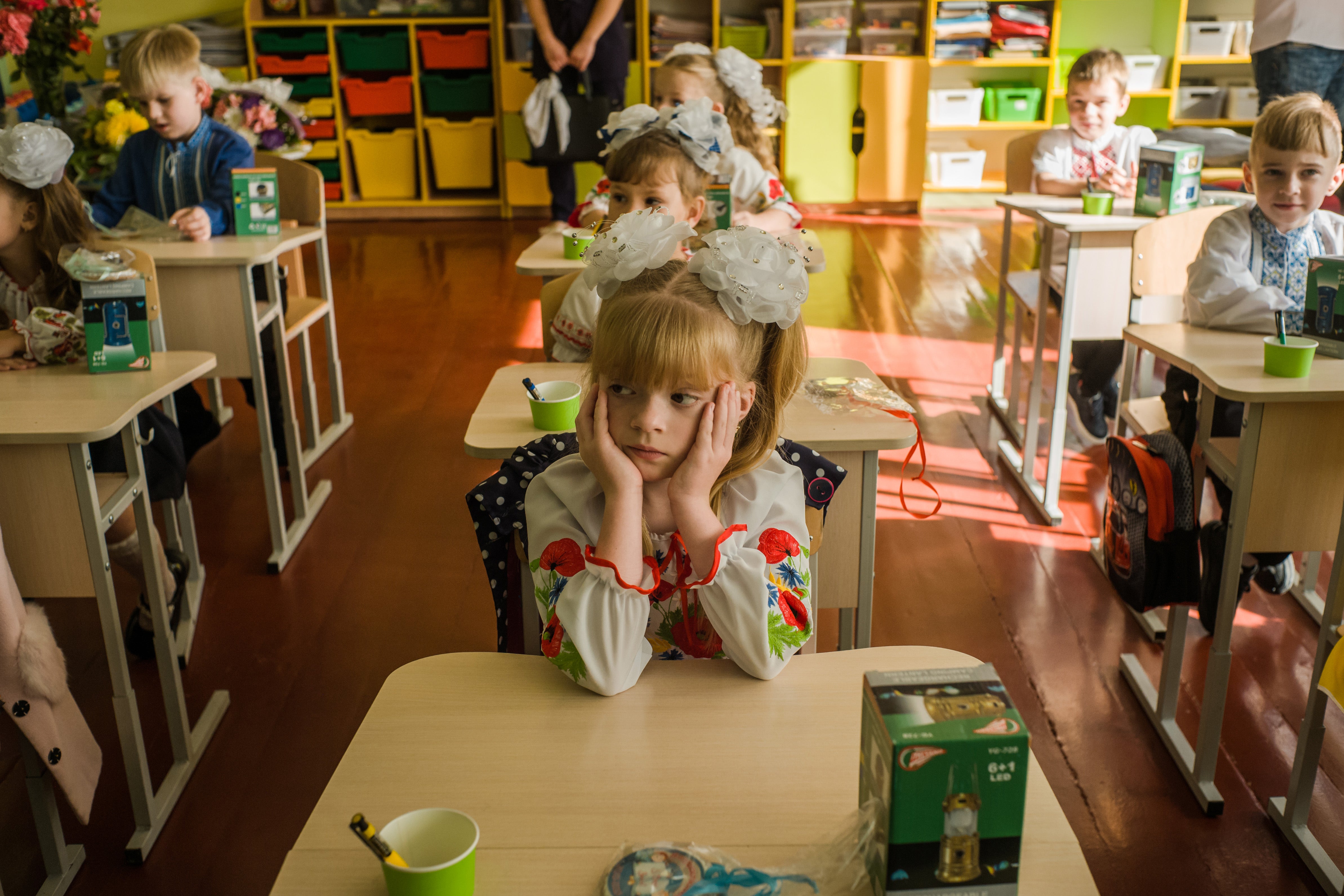
“There were a few words from the director, a few words from the high school students and a dance performance in blue and yellow shirts,” his mother, Yulia Voloshynska, 38, recounts by phone. To his teachers, Severyn presented bouquets of guelder roses, a flowering plant symbolic of Ukraine, she said.
But the day was also marked with unmistakable signs of the war. For security reasons, the official ceremony took place not on Thursday, 1 September, as tradition demands, but one day earlier. Children were instructed to bring “emergency backpacks” in case of an air raid, with water, a snack, a flashlight and warm clothes. “It can get cold in a bomb shelter,” Voloshynska says.
Before the war, children were forbidden to bring mobile phones to school, but they are now encouraged to do so. “You need insurance to be able to connect with your child,” Voloshynska says. “Especially in the bomb shelter.”
As part of Wednesday’s ceremony, the children also conducted an air raid drill in which they descended together into the shelter. Voloshynska says the shelter was better than those of other local schools: it was clean, with a newly built toilet.
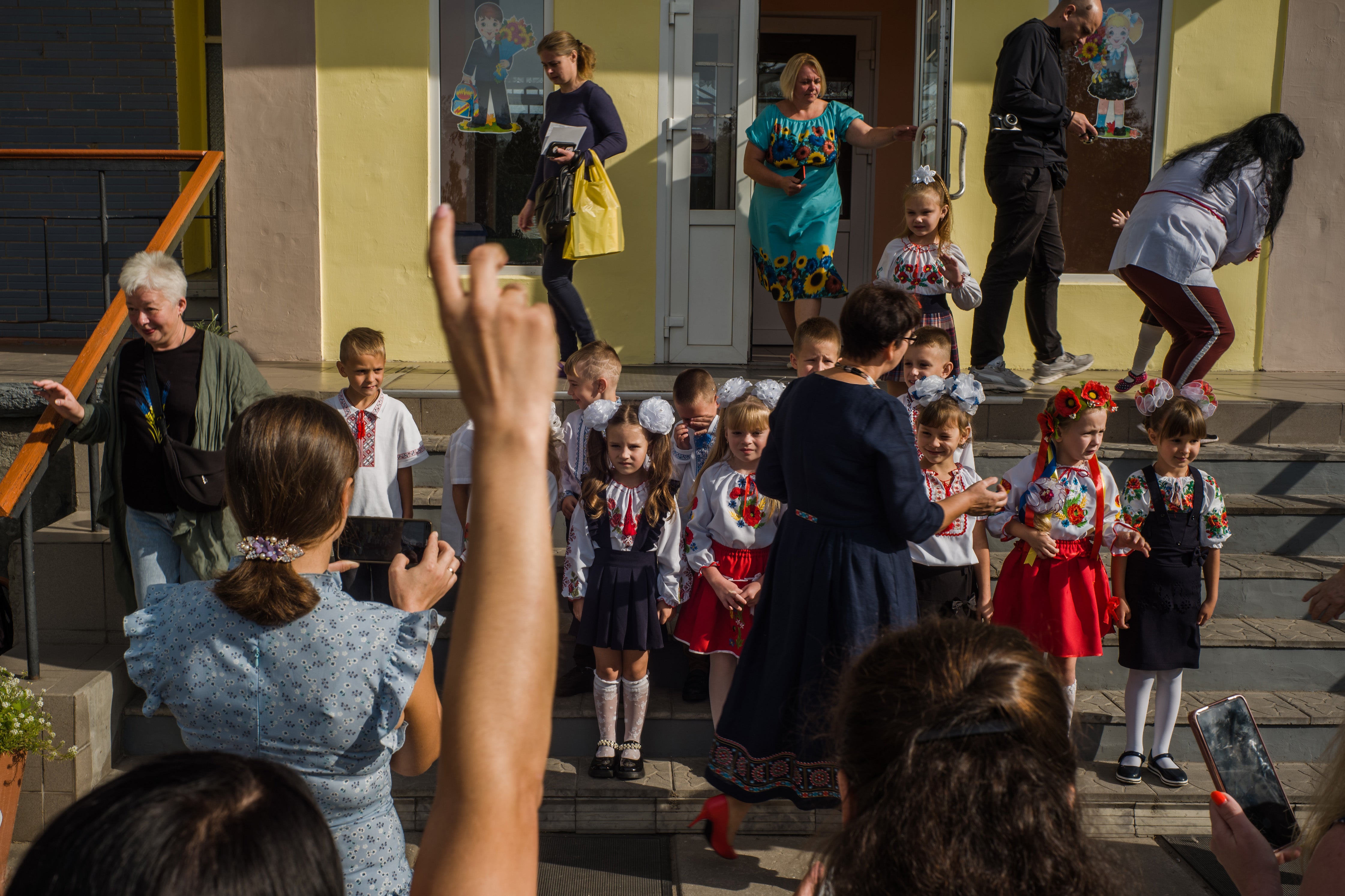
On the way home, air raid sirens went off. “We were lucky that it happened later,” Voloshynska says. “Otherwise the celebration would have been ruined.”
Nikita Budylin, 16, did not go to his school on Thursday because his school building was bombed and most of his teachers have fled, along with most of his classmates and nearly all of his neighbours.
Nikita is starting his final year of high school as one of the few young people living in the front-line city of Bakhmut in the eastern Donbas region. Russian forces have been shelling the city, driving out 80 per cent of its population of 80,000. One strike hit School Number 11, where Nikita was enrolled.
He doesn’t know what to expect, except that classes will be online.
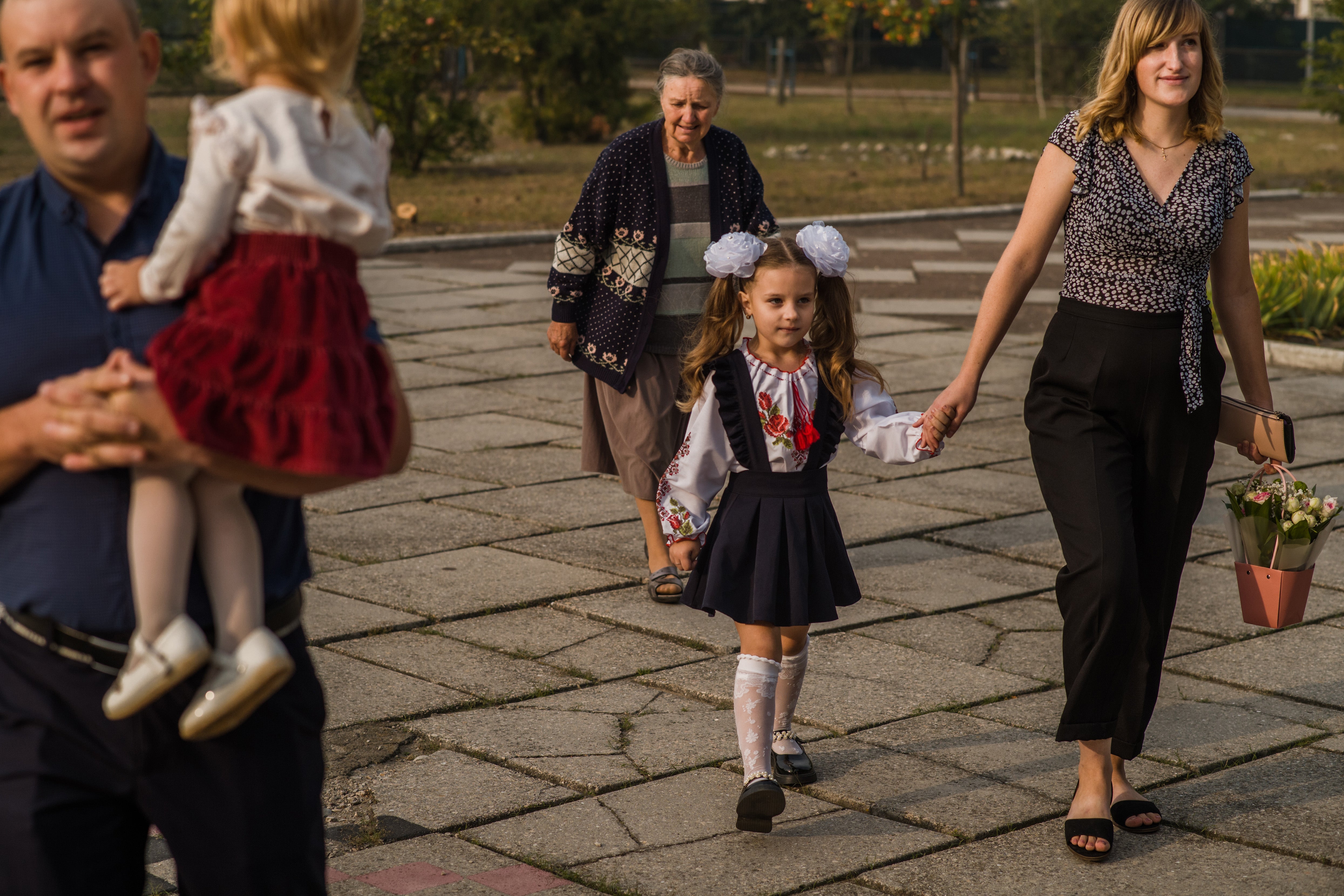
On Wednesday, Nikita joined an online meeting with his school’s head teacher – who now lives six hours by car to the west – to find out how schooling in wartime will work. The plan is to sort the students, wherever they live, into groups using Microsoft Teams. Nikita will get links to digital textbooks, which he will read on his phone because his apartment is without electricity most of the time and home internet service is completely cut.
No matter. Nikita is determined to graduate. He wants to join the police.
“Since I was asked in the fourth grade [year five], I’ve said I want to be a policeman,” he says. “Nothing has changed that.”
Bohdan Bohatyrchuk, 6, is entering year two but doesn’t want to go. “If it were up to him, he wouldn’t be going to school like this,” says his father, Vyacheslav Bohatyrchuk, 33.
He explained to his son that this is what other children do, he says. It’s an important part of life. He’ll make new friends.
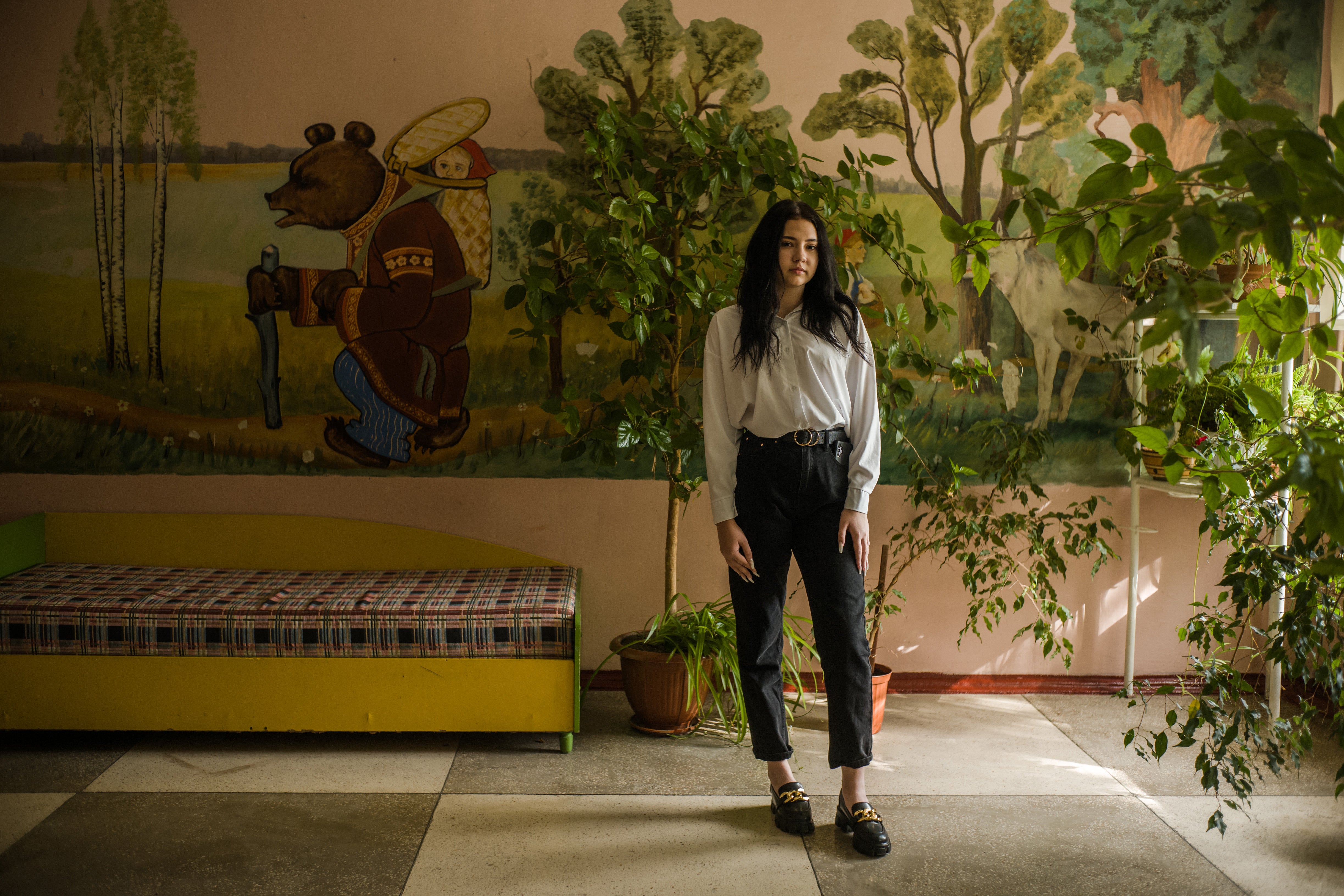
“All right, if that’s what’s needed, then – OK,” Bohdan answered, according to his dad.
The family lives in the northwestern Kyiv suburbs, where Russian forces attacked a key airport in the war’s first hours and where bitter fighting ensued. Bohdan’s school is located in Bucha, where Russian soldiers allegedly carried out a murderous campaign against civilians and which is now synonymous with war atrocities.
Bohatyrchuk, his wife, Kristina, 26, and Bohdan managed to escape to western Ukraine shortly after the fighting started. They returned to their home at the end of April, after the Russians retreated.
School officials assured them that all is in order with the school’s bomb shelter. But Bohatyrchuk says he worries about how the young children will react to air-raid sirens and needing to take shelter.
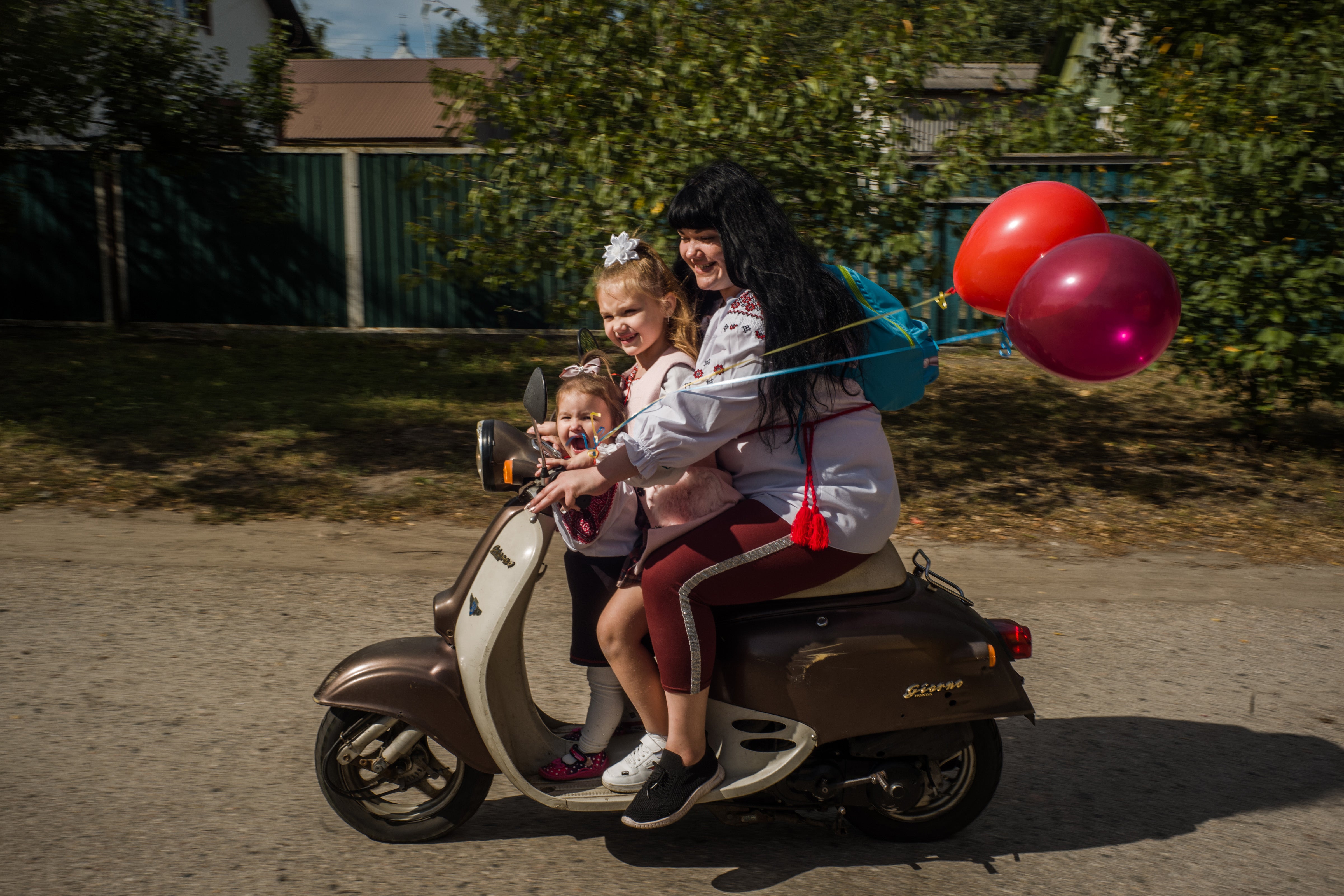
On Wednesday, the school held a 20-minute ceremonial “first class” for the children. “It was a small celebration for them,” he says. “There were photographs, singing and dancing. They met their teachers. It was nice.”
Oksana moved with her family to Lviv after Russian forces occupied their home city of Kherson and shelled a school next to her building.
As the new school year approached, Oksana, who asked that only her first name be used because family members still live under Russian occupation, decided that her son Artem, 11, would study online with teachers from home.
“It was important for me to support those teachers who left [Kherson] and give them work,” she says.
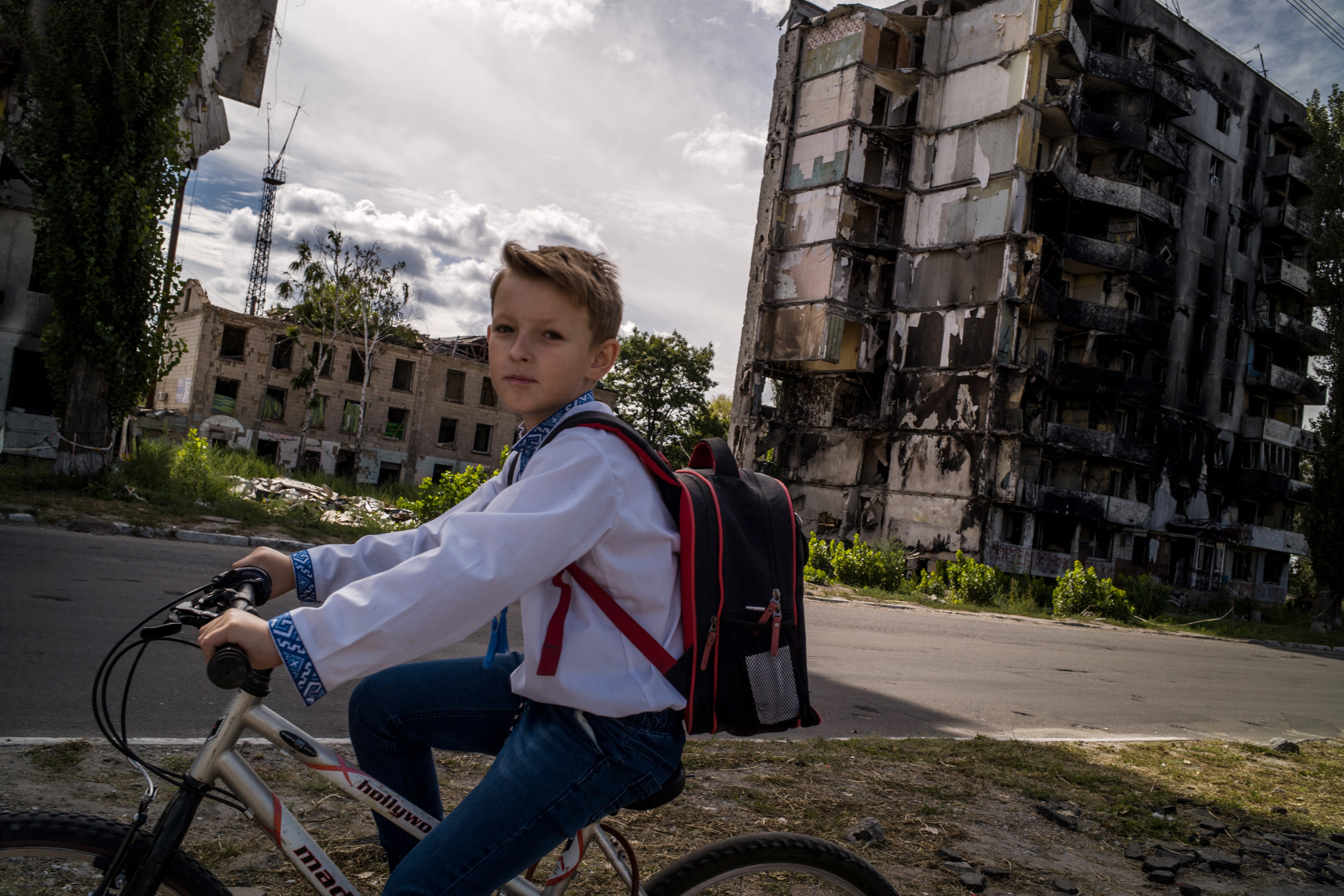
Oksana says she felt reassured that the online sessions would include a school psychologist.
“I think this is a very good idea,” she says. “She’ll help them get to know each other, and help everyone in whatever condition they are.”
But she also worried about what the children have lost.
“Children are forced now to live in such conditions that positive emotions are hard to get,” she says. “To celebrate the First of September, where everyone is just happy to see each other getting ready for school – this was such a ritual. Going with parents to get school supplies, choose a backpack, notebooks. Well, it’s not so important now. It’s just sad. Sadness for what our children have to go through.”
Still, she says, she would try to make Artem’s first day of year six special.
“It should be a good day,” she says. “Maybe we’ll order pizza.”
Hendrix reported from Bakhmut, Ukraine, and Parker from Washington. Serhiy Morgunov in Kyiv contributed to this report.
© The Washington Post







